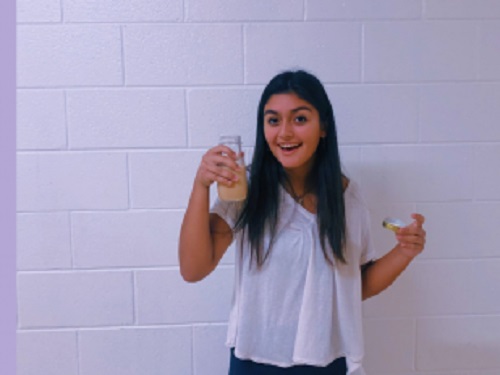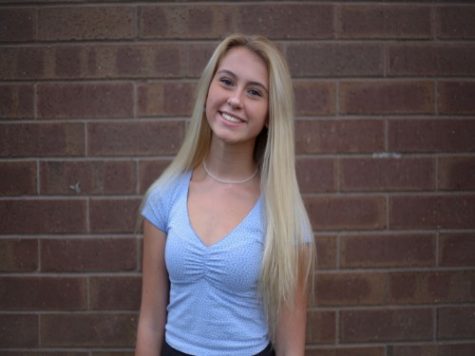Caffeine’s effects on teens, necessary or unnecessary

JUNIOR MIA GARCES drinks coffee, or some type of caffeinated beverage, in the morning to feel more energized before class. Bottled mocha lattes seem to do the trick for Garces.
Waking up in the early hours of the morning to make a 7:20 block 1 class can easily deflate students’ energy. So, high-school students often lean toward a little morning ‘pick-me-up’ in the form of coffee or other caffeinated beverages to feel that energy boost and an elevation in mood and productivity.
Although most teens are aware of the unpleasant side effects of constant caffeine consumption, they still choose to drink and purchase these beverages from popular cafes such as Starbucks, Dunkin’ Donuts and other local businesses.
Despite its less than favorable reputation, caffeinated beverages appeal to teens due to it’s short term effects including: improved energy levels and quicker burn fat, potentially lowering risks of a variety of diseases and significant health issues.
“When I drink coffee I feel more energized, but when I forget or neglect it throughout the day, I notice a difference in my overall performance in classes,” junior Burkelle Reighard said.
What teens don’t understand, though, are the negatives that drinking everyday caffeinated beverages entails such as insomnia, restlessness, fatigue and headaches.
According to verywellhealth.com, approximately 85 percent of the world’s population drinks caffeinated beverages daily and 75 percent of these caffeine drinkers are children and teens.
Junior Mia Garces believes her body craves caffeine and often feels the need for coffee to get through the school day.
“When I don’t drink coffee, I feel like I get more headaches and it puts me in a bad mood,” Garces said.






